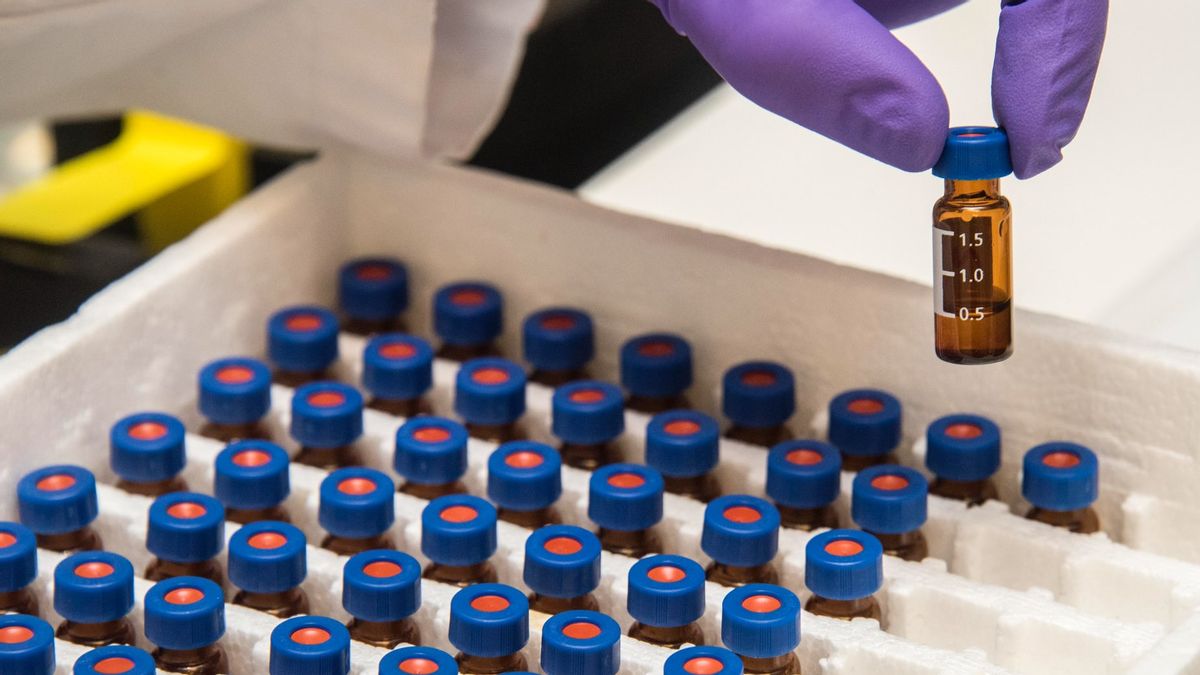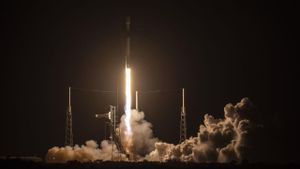JAKARTA - One of the volunteers who received the COVID-19 vaccine trial had a positive initial result. This was conveyed directly by a biotech company based in the United States (US), namely Moderna, which is also in partnership with the National Institutes of Health.
Reported by CNN, Tuesday, May 19, if further studies go well, this vaccine could be available to the public as early as January 2021, said Dr. Tal Zaks, Moderna's chief medical officer. "This is really good news and news that we think we have been waiting for some time," said Zaks.
This initial data comes from Phase 1 clinical trials, which usually study small numbers of people and focus on whether the vaccine is safe and elicits an immune response. The results of this study have not been reviewed or published by medical journals.
Moderna is one of eight vaccine developers worldwide to conduct human clinical trials with a vaccine against the new coronavirus, according to the World Health Organization (WHO). Other companies known to be developing vaccines are Pfizer and Inovio.
Moderna has vaccinated dozens of research volunteers and has measured the antibodies of eight of them. The eight people were shown to have developed neutralizing antibodies to the virus at levels that reach or exceed those of people who naturally recover from COVID-19.
"We have shown that these antibodies, this immune response, can actually block the virus. I think this is a very important first step in our journey towards vaccine discovery," Zaks said.
A vaccine specialist not involved in Moderna's trials said the company's research results were extraordinary. "This shows that antibodies not only bind to the virus, but also prevent the virus from infecting cells," said Dr. Paul Offit.
Although this vaccine has had promising results when tested in the laboratory, it is not known whether it will work in people at large. The US Department of Food and Drug Administration has given companies permission to start Phase 2 trials, which typically involve several hundred people.
Moderna plans to start a large-scale clinical trial, known as a phase 3 trial, in July. Phase 3 usually involves tens of thousands of people.
Offit said that prior to the pandemic, vaccine developers would normally test their products on thousands of people before moving on to Phase 3, but said Moderna was "very unlikely" to have vaccinated that many, as they have only vaccinated a few people so far.
Dr Offit also said that it made sense for Moderna to move to Phase 3 without vaccinating many people, given that it is currently pressed for time and seeing the number of people dying from COVID-19 every day.
DistributionIn January, Dr. Anthony Fauci, director of the National Institute for Allergic and Infectious Diseases, said it would take about 12 to 18 months for the vaccine to spread generally.
Zaks said he agreed with that estimate, given that Moderna is expected to successfully put delivery dates in each region between January and June 2021.
In the Moderna study, three participants had fever and other flu-like symptoms when they received the vaccine at a 250 microgram dose. Moderna anticipates a Phase 3 study by providing doses between 25 and 100 micrograms.
So far, Moderna's study subjects vaccinated with doses of 25 and 100 micrograms achieved similar or even higher antibody levels than people naturally infected with the coronavirus.
"We have to do a formal efficacy test where many people vaccinate and then we will monitor them for the next months to make sure they don't get sick," Zaks concluded.
The English, Chinese, Japanese, Arabic, and French versions are automatically generated by the AI. So there may still be inaccuracies in translating, please always see Indonesian as our main language. (system supported by DigitalSiber.id)













